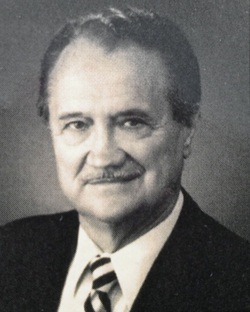
“How can I be sure that I will be successful and happy in my career?”
(How can I be sure) “my relationships with my spouse, my children, and my extended family and close friends become an enduring source of happiness?”
(How can I be sure) “I live a life of integrity—and stay out of jail?”
I admit I was thrown by the last question – the part about staying out of jail – but having read the book, I understand. No spoiler here.
This book is about the meaning we give our lives. It echoes Viktor Frankl’s classic Man’s Search for Meaning, insights from a prisoner in the Nazi concentration camp at Auschwitz. Frankl saw a person’s search for meaning as the greatest task in life. Meaning could come from (1) work, (2) love, and (3) suffering. The meaning in suffering comes from how we respond (or using the term of my mentor, Joseph Rychlak, “telospond”).
When I encountered Joseph Rychlak in a graduate course at Purdue University, I found a kindred soul. Rychlak took a Kantian perspective. We construct our reality from the world around us. In other words, we give meaning to our world – and to our work. Consciously or subconsciously, we choose how we interpret our experience, what it means to us, how we behave based on that meaning.
The implications of this Rychlakean perspective are both practical and profound. (1) We are never totally bound by our environment. In the horrors of Auschwitz Frankl experienced wonder and great beauty in a magnificent sunset. There is free will. We do have choice. (2) People can behave arbitrarily. As a manager you may use every motivational technique and reinforcement possible and still not get the desired response from your employee. People change when they choose to change. “Momma, I’ll change him after we are married.” Only if he chooses to change. (3) To understand others, we have to look through their eyes, listen with their ears, to do our best to see how they view the situation, the meaning they are giving the situation. Having been married many years, I am still working on this one.
I recommend How Will You Measure Your Life? for your reading list -– and Viktor Frankl’s Man’s Search for Meaning – always worth another read. And for those interested in more about Joseph Rychlak, I recommend Discovering Free Will and Personal Responsibility, very intellectual but his most accessible book.
Image of Joseph Rychlak from the 1990s. A brilliant psychologist and even better human being. Used with permission.
 RSS Feed
RSS Feed